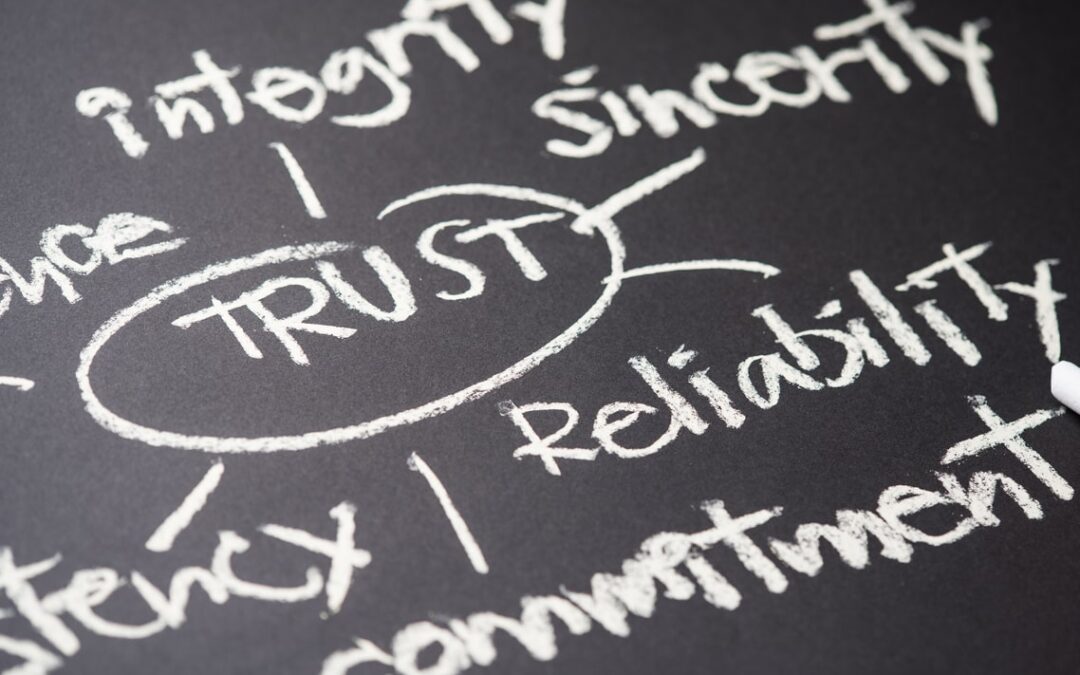Trust is developed through consistent actions over time. People learn to believe what you tell them and are confident that you’ll deliver on what you say you will do. Additionally, they are more inclined to disclose personal or sensitive information, knowing you won’t repeat what they share without permission.
Simple gestures can demonstrate that you’re trustworthy. For example, acknowledging requests within 24 hours, meeting commitments on time without prodding or reminders, proactively communicating, and apologizing for last-minute changes or issues with something previously promised.
Know what you value and create reasonable standards that align.
Because your communication preferences and non-negotiables may differ from the person you’re interacting with, make it a point to discuss wants and needs openly. Think of the 5W’s—Who, What, When, Where, and Why—to establish your communication desires and cadence.
Also, consider—How—you show up. Do you listen with positive intention in dialogues or automatically jump to conclusions about how you think someone else will respond? Furthermore, note how you react to questions or push back as these actions indicate what’s important to you, e.g., needing time to process new information before replying.
Demonstrate your communication savvy.
Effective interpersonal communication requires listening intently, exhibiting patience, honoring different perspectives, and embracing silence. Tapping into core emotional intelligence competencies and the 8Cs of Good Communication practices can give you some essential ingredients for success.
Additionally, if you’re working together on a project, documenting actions and decisions can help manage expectations and cultivate camaraderie. Moreover, being reliable and experimenting with these 6As can boost your communication savvy and foster trust.
6As:
#1 Approachable.
When you’re approachable, you are open, friendly, and engaging. Physical indicators include smiling, mirroring the other person’s body language, and removing any obstacles to getting to you, e.g., keeping your door open for potential pop-ins and being accessible via phone during designated timeframes. Informing people how best to contact you can help you maintain any boundaries you might need to safeguard your schedule. Furthermore, asking questions, soliciting various perspectives, and inviting them to participate in an activity can make them feel valued. Here’s a brief list to help keep your communication approach in check.
#2 Authentic.
You may not always be 100% authentic or transparent in your communication for many reasons. Whether you’re protecting yourself or others from negative feelings, uncertainty, or the fear of the unknown, ultimately, you’re hiding the facts, even if you don’t realize it. If you’re someone who starts with “If I’m being honest,” you’ve just put in question everything else you’ve previously said. It’s not that you intended it that way, but it’s like you’re admitting out loud, “Enough is enough. I’m finally ready to tell you the truth about what I think and feel” about fill-in-the-blank. When you let down your guard and communicate at your highest expression you invite others to do the same.
#3 Accepting.
Acceptance builds confidence in yourself and trust in relationships. It’s important to understand how you feel and process your emotions versus ignoring them. This includes working with your “Internal Family System,” aka various parts, and recognizing the difference between rational and irrational thoughts. Additionally, learning to regulate your emotions and accept all aspects of yourself can help you increase your resiliency and maintain positive relations with others by working through issues before they become problematic. As a result, you’re more apt to accept others for who they are, enabling them to courageously speak up and not need to “cover up.”
#4 Agile.
As you become more self-aware, you can increase your agility and ability to pivot in the moment. This includes being 100% present in conversations, listening rather than thinking about how you may respond, and being situationally aware of the energy and vibe flowing in the environment. You can broaden your perspective by asking questions to find common ground, compromising as needed, and bouncing back when things don’t go your way. Your ability to self-regulate and set boundaries that keep you grounded is essential to embracing a more fluid approach so you don’t fall victim to your survival instincts.
#5 Appreciative.
What you say—and don’t say—makes a difference. Your words, actions, and behaviors convey what’s important to you. Acknowledging another person’s contribution makes them feel seen and heard. Also, conveying gratitude can boost their self-esteem and evoke feel-good hormones—dopamine, endorphins, and serotonin—which promote happiness and well-being. A powerful way to express appreciation starts with two simple words, “Thank you.” Following this up by describing the “why” can make your statement more meaningful and impactful.
#6 Accountable.
You are honest and responsible for your choices and actions when you’re accountable. You incorporate quality, care, and excellence in all you say and do and solicit feedback to ensure your messages resonate, are clear, and relevant. You recognize that people form assumptions about who you are from what they perceive, so you openly discuss what’s working and not working and make amendments as needed. Also, you take a mindful approach to mitigate sending mixed messages and take ownership for any unintentional “communication snafus.”
Honing your skills takes commitment and practice.
Conversing in a calm, compassionate, and curious manner with a positive outlook emits a vibe that encourages sincerity and connection. As Maya Angelou famously stated, “I’ve learned that people will forget what you said, people will forget what you did, but people will never forget how you made them feel.”
Activate your best with those around you.
Self-leadership is about getting to know yourself better and applying that knowledge to how you connect with others. As a lifelong student, certified professional coach, and consultant, activating the best in others through self-leadership, interpersonal relations, and team dynamics are passions of mine. My approach is personalized and customized, tapping into various assessments, disciplines, modalities, and techniques. Also, check out my “Micro & Mini Service Offerings” and try one session to inspire you. Sign up solo or with another person or group to work on a specific exercise or activity and split the costs! Contact me to get started.

